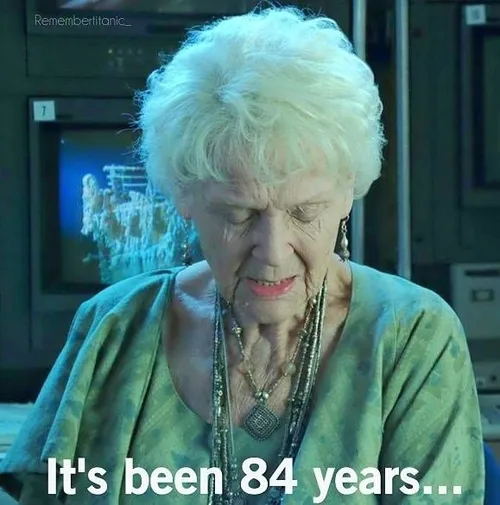peppergomez
2[H]4U
- Joined
- Sep 15, 2011
- Messages
- 2,155
Follow along with the video below to see how to install our site as a web app on your home screen.
Note: This feature may not be available in some browsers.
IIRC my first desktop had a 40GB drive... crazy how far we've come!
In one way it is quite extraordinary after that you see a 256 GB laptop in the costco isle and not that much at the same time.IIRC my first desktop had a 40GB drive... crazy how far we've come!
You must have been rich. lol. My first hard drive (god I am dating myself here) was a Seagate ST-506 5MB MFM drive!Mine was 40Meg!
You must have been rich. lol. My first hard drive (god I am dating myself here) was a Seagate ST-506 5MB MFM drive!

Very long story short. Back when I worked for a disk drive company, someone gave me a "customer sample" 10 MB drive. 8" full high floppy disk form factor. Needed AC power. Installed it into my CP/M system and was thrilled. But CP/M was never really designed for HDDs. When I got a PC AT, I put in a 30 MB drive, and was thrilled again. MS DOS 2.1 had directories I backed up onto 1.2 MB 5 1/4" floppies.Mine was 40Meg!
Pretty sure mine was 20 megs too. By the end of its life, it had so many bad sectors, we had about 20 megs of storage using doublespace.Mine was 20megs.
Now I have a bunch of 18tbs in a nas. Crazy how far we've come.
Mine 20MB, on an Atari ST running my whole video game rental/comic book shopMine was 40Meg!
All drives fail at some point, so having multiple drives is an absolute necessity for backing up data.FROM THE ARTICLE: Assuming a cost of $15 per Terabyte, a 30TB drive would cost about $450 which is a steal...
Except you need 4+ redundant drives (@ $450 each x 4 = &1,800) to feel secure that you MIGHT be able to recover your core 30TB data & then replicate that to 4 more drives @ another $1,800.
Yeah, that might be cheap for a small biz, but it's very risky because of Seagate's crappy quality (the only brand I've ever had fail & I've had a LOT of drives).
Color me pessimistic.
Seagate = the only HD's I've ever had fail & they failed in multiples (personal / not biz).All drives fail at some point, so having multiple drives is an absolute necessity for backing up data.
Like I said: Seagate's crappy quality (the only brand I've ever had fail & I've had a LOT of drives).Not sure about the 4 HDD for each data disk for backup being a necessity
Where they large modern one ?Seagate's crappy quality (the only brand I've ever had fail & I've had a LOT of drives).
LOL I remember that (and stacker!)...Pretty sure mine was 20 megs too. By the end of its life, it had so many bad sectors, we had about 20 megs of storage using doublespace.
A backup NAS would not be using raid 0 for 60TB of storage...you would do it raid1 for 30TB...That make your NAS or other storage solution extremely simple.
2 simple smallest possible 2 bay NAS and you can have 60 TB of storage with a backup in a different location, which could be big enough for many small enterprises.
Single USB/ethernet drive for a lot personnal use would do.
And how much are those 60TB SSD's?Given there are 60TB+ SSDs available today I wish the consumer market could get a taste. Having faster backup speeds than HDD would be a boon the more there is to regularly backup and scrub. Plus less heat and no noise.
We just received several shelves of Kioxia CM7 30TB's and they went for just about 8G's each (just for the drives, each.)And how much are those 60TB SSD's?
Obviously they're expensive currently but so were SSDs generally for the longest time. HDDs at such high capacities have already had to use helium just to maintain speeds and reduce heat and I'm honestly curious whether it's still the R&D/tooling costs that are preventing price-per-TB parity with SSDs or if, somehow, the materials are actually just that much cheaper for HDDs than SSDs.And how much are those 60TB SSD's?
Yes I can't disagree. Had a RAID 5 w 4 seagate barracuda drives fail on me lost lots of data.Seagate - HARD pass
I'd love to see a flow chart of your current storage... or a list...It'd be nice to upgrade at last. I've been waiting years to move past 18TB drives as I need my cold storage solution to have 25+TB drives to handle a main array made of larger than 18TB drives.
Weak, bow down to my 4GB maxtor fireball from 1998. "Hey man we can fit several CDs on this thing!"IIRC my first desktop had a 40GB drive... crazy how far we've come!
Imagining a high density storage device with these... in RAID 6.
My 4 GB Maxtor was a 5-1/4" drive IIRC...Weak, bow down to my 4GB maxtor fireball from 1998. "Hey man we can fit several CDs on this thing!"
I still have my 40 meg drive. Pretty sure I still have a Conner 420 meg too. I thought that amount of space was amazing. Now I have flash drives bigger than that.Mine was 40Meg!